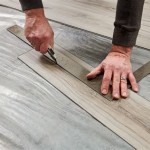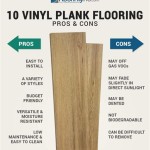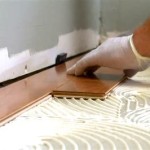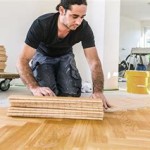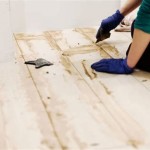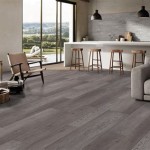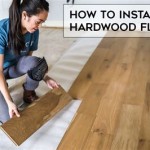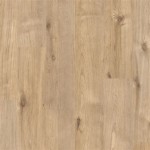What Is The Best Waterproof Scratch Resistant Flooring?
Choosing the right flooring can be a daunting task, especially when considering factors such as durability, aesthetics, and functionality. For many homeowners, a combination of waterproof and scratch-resistant properties is crucial. These features provide peace of mind, especially in high-traffic areas where spills and everyday wear and tear are common.
While various flooring options boast these qualities, some stand out as top contenders. This article examines some of the best waterproof and scratch-resistant flooring options available, exploring their characteristics, advantages, and disadvantages to help you make an informed decision.
Luxury Vinyl Plank (LVP)
Luxury vinyl plank (LVP) has emerged as a popular choice for homeowners seeking both durability and style. It's made of multiple layers, including a wear layer that provides scratch resistance and a core that resists moisture. LVP flooring simulates the look of natural materials, such as wood or stone, offering a wide variety of colors, textures, and patterns to complement any décor.
One of the primary advantages of LVP is its water resistance. Its core construction prevents water from penetrating, making it suitable for areas prone to spills or moisture, such as kitchens and bathrooms. Furthermore, LVP boasts excellent scratch resistance, making it ideal for households with pets or active children. However, LVP might not be the best option for outdoor spaces, as it may not withstand extreme weather conditions.
Luxury Vinyl Tile (LVT)
Luxury vinyl tile (LVT) is another versatile flooring option that delivers waterproof and scratch-resistant properties. Similar to LVP, LVT is constructed in multiple layers, providing a robust and durable surface. LVT offers exceptional scratch and stain resistance, making it suitable for high-traffic areas. Its water resistance makes it an ideal choice for bathrooms, kitchens, and even basements.
One of the key benefits of LVT is its versatility. It's available in a vast array of styles, mimicking natural materials like stone, tile, and wood, allowing homeowners to customize their space while enjoying the benefits of its durability. Moreover, LVT is relatively easy to install, offering a cost-effective solution compared to other flooring types. However, LVT can feel hard underfoot, which may be a concern for some individuals.
Engineered Hardwood
Engineered hardwood is a popular choice for homeowners seeking the natural beauty of hardwood flooring with enhanced durability. It features a top layer of real hardwood bonded to a plywood core, offering stability and moisture resistance. Engineered hardwood flooring provides excellent scratch resistance due to its durable top layer, and its core construction makes it more resistant to warping or cupping than solid hardwood.
While engineered hardwood offers a degree of moisture resistance, it may not be as fully waterproof as LVP or LVT. It's essential to choose a product specifically designed for wet areas if planning to install it in a bathroom or kitchen. Engineered hardwood can be more expensive than other options, but its durability and elegance make it a worthwhile investment for many homeowners.
Porcelain Tile
Porcelain tile is known for its durability, scratch resistance, and water resistance. It is often a preferred choice for bathrooms, kitchens, and entryways. Porcelain tile is made from fired clay, making it incredibly hard and resistant to scratches and stains. Its non-porous surface makes it completely waterproof, preventing moisture from penetrating and affecting the subfloor.
One of the primary advantages of porcelain tile is its versatility. It comes in various colors, patterns, and textures, allowing homeowners to create unique and stylish spaces. Furthermore, porcelain tile is exceptionally durable, making it a long-lasting investment that will withstand the test of time. However, porcelain tile can be cold underfoot, and installation can be more complex and time-consuming compared to other options.
Other Considerations
Beyond the primary flooring options mentioned above, other factors influence the best choice for your home, including budget, personal preferences, and lifestyle.
Budget: LVP and LVT generally fall into a more budget-friendly category compared to engineered hardwood or porcelain tile. Engineered hardwood can be a mid-range option, while porcelain tile often represents a higher investment.
Personal Preferences: Consider your aesthetic preferences and the overall design of your home. If you desire the natural beauty of wood, engineered hardwood or LVP might be more appealing. If you prefer a modern and sleek look, LVT or porcelain tile could be a better fit.
Lifestyle: Consider your household's needs. For families with young children or pets, durable and scratch-resistant flooring like LVP, LVT, or porcelain tile might be more suitable. If you value a more traditional and elegant look, engineered hardwood might be an excellent option.

Best Waterproof My Dad S Flooring America
Best Waterproof My Dad S Flooring America
Top 6 Exclusive Water Resistant And Waterproof Floors

The Top 5 Scratch Resistant Flooring Options
Best Waterproof My Dad S Flooring America

Best Engineered Hardwood Floor For Scratch Resistance Lifecore Flooring S

Waterproof Flooring Solutions Carpet One Floor Home

Best Engineered Hardwood Floor For Scratch Resistance Lifecore Flooring S

Is Vinyl Plank Flooring Waterproof Twenty Oak

Waterproof Flooring Solutions Carpet One Floor Home
See Also
